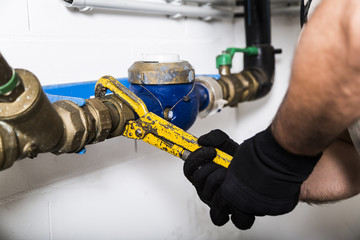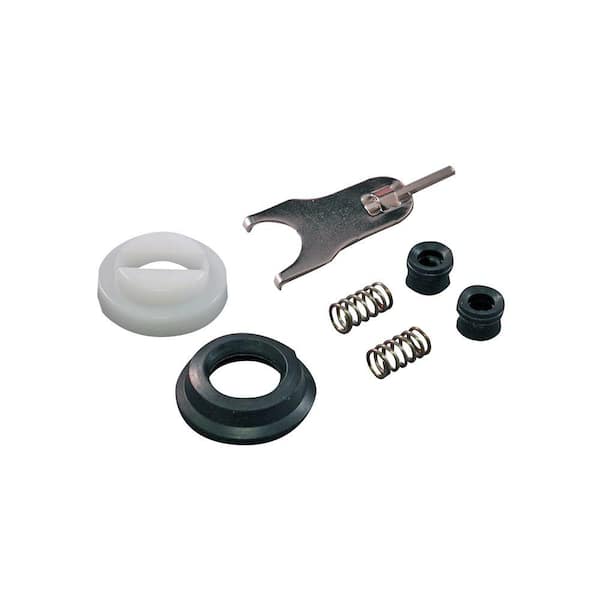When you need emergency plumbing, you need a plumber to take your call outside regular business hours. Often, these plumbers charge more for their services. But how do you know if your situation is an emergency? To help you, we’ve compiled a list of scenarios that warrant an emergency call to a plumber.

When pipes burst, they can cause serious damage to your home. Water can saturate floors, ruin furniture and possessions, and even cause mold and mildew problems. An emergency plumber can help you contain the damage and get your home back to normal quickly.
Pipes can burst due to over-pressurization. All water pipes have a specific amount of pressure they can handle, and if they exceed this limit, it may cause them to burst. A professional plumber can inspect your pipes to determine their pressure capacity and recommend ways to prevent over-pressurization.
All pipes are designed to last for a certain amount of time, and after that period, they must be replaced or else they will likely leak. A professional emergency plumbing service can replace your old and rusty pipes with new, durable pipes that will not burst or leak. They can also advise you on the best ways to protect your pipes from corrosion and other environmental factors that can shorten their lifespan.
Every winter, homeowners in cold climates must be aware of the potential for frozen pipes. An emergency plumber can help you prevent this problem by inspecting and insulating your home’s pipes. Pipes that run through unheated areas like the attic, crawl space or unfinished basement, as well as those that are exposed to outside walls, are especially vulnerable to freezing temperatures.
If you are unsure whether or not your pipes are frozen, turn off your home’s main water supply valve until you can call an emergency plumber to assess the situation. Shutting off the water will reduce the risk of flooding and will also make it easier to locate the broken pipe when it happens.
Once the plumber has determined what caused your pipe to burst, they can fix it and advise you on ways to prevent future incidents. For example, if the pipe burst due to corroded iron, they can examine your other pipes to ensure they are not corroded as well.
If your home is affected by a burst pipe, contact your insurance company immediately to start the process of filing an insurance claim. Take pictures of the burst pipe and any related damage, and keep records of your conversations with your insurer. A water restoration company can work with your insurer to make sure the damage is covered, so you don’t have to pay for it out-of-pocket.
Clogged drains are one of the most common plumbing emergencies, and they can be caused by many things. Food, hair, grease, and other substances that do not break down can build up in your pipes and cause a blockage. You can prevent some clogs by regularly using your drain cleaner, but many will still occur.
Clogs can lead to flooding in your home, which can damage your furniture, flooring, and walls. They can also lead to sewage backup, which is a serious health hazard and should be dealt with immediately.
If you notice a clog, turn off the water supply at your home and call an emergency plumber right away. Don’t use over-the-counter drain cleaners, as they can sometimes make the clog worse by creating more obstructions in your pipes. Instead, try pouring hot water down the drain or adding a cup of white vinegar to your sink or tub.
In addition to clogged kitchen and bathroom drains, you can also experience them in your laundry room, garage, or basement. These problems can be very difficult to deal with because they stop you from washing clothes, taking showers, or doing anything else in the affected area of your home.
A clogged drain can also be a breeding ground for bacteria, which can cause illness in your family. If you notice a foul odor coming from your drain, it is likely due to bacteria. Clogged drains can also attract household pests such as ants and spiders, so it is important to get them fixed quickly.
To check if your clogged drain is an emergency, consider how long you have had the issue and whether or not it has caused any additional issues. You can also look for signs such as wet floors or stains on the walls or ceiling of your home. These are all good reasons to call an emergency plumber right away. The more time you waste with a clogged drain, the more expensive it will be to fix. By acting quickly, you can avoid costly repairs in the future.
Many people don’t realize how important it is to have functioning plumbing fixtures until they experience a problem. While some plumbing issues can wait until normal business hours to be fixed, others need immediate attention in order to avoid costly damage and safety hazards.
A dripping faucet, toilet, or sink can lead to water waste and increased utility bills. Additionally, if left unattended, a leaking fixture may cause damage to the surrounding walls and flooring. Emergency plumbers have the tools and skills to fix your broken fixtures quickly and efficiently.
Some common signs of a broken fixture include water puddles, lack of hot water, and low water pressure. If you notice any of these problems, call your emergency plumber right away.
Emergency plumbers can also repair or replace your damaged water heater if necessary. If your water heater is older, it may be time to consider upgrading to a more energy-efficient model.
Another sign that it’s time to call an emergency plumber is if you have a sewer backup in your home or business. Sewer line clogs and backflow prevent the proper drainage of sewage, which can cause dangerous health risks. Emergency plumbers can restore the proper function of your plumbing system and eliminate the unpleasant odor associated with sewer backups.
When you’re in need of an emergency plumber, it’s important to choose the best one for your needs. You’ll want to find a professional who has years of experience, is licensed and insured, and offers competitive prices. It’s also a good idea to check online reviews and testimonials for previous customers before making a decision.
If you can’t afford to hire an emergency plumber, there are some things you can try at home. For example, if your toilet is leaking, you can try turning off the water supply valve to stop the flow of water. You can also apply heat to the leaking fixture using a hair dryer or heating gun. This will cause the nut or pipe to expand, which should break it loose. Just make sure to turn off the electricity to the fixture if you’re using a heat source and shield any flammable materials from the flames.
The first thing that needs to happen when you notice a plumbing problem is to shut off the water supply. This will prevent the problem from getting worse and help you avoid costly repairs down the line. After you’ve done this, the next step is to look for leaks around your home. Look for damp spots, discolored paint or wallpaper, and musty odors in areas where there aren’t any obvious pipes. You should also check behind sinks, underneath toilets, and in other hard-to-reach places for signs of leaking water.
Water leaks aren’t always a plumbing emergency, but they should be addressed as soon as possible to avoid extensive damage and costly repairs. Not only does a leaky pipe mean expensive repairs, but it can lead to mold and mildew in your home, which can cause respiratory problems, itchy eyes, and other health issues. It’s also a fire hazard and can ruin your furniture and flooring.
If you have a serious leak, it’s essential to call an emergency plumber right away to ensure the issue is dealt with as quickly as possible. You can try to turn off the water at your home’s main valve, but this isn’t always an effective solution. An emergency plumber will be able to find the source of the leak and repair it before it gets out of hand.
Another type of plumbing problem that requires immediate attention is a sewer backup. This is a serious health hazard that can cause vomiting, diarrhea, and other unpleasant symptoms. It’s typically caused by flushing items like wipes, paper towels, and feminine hygiene products down the toilet, as well as tree roots growing into sewer lines.
You can try to fix a clogged toilet by pouring a cup of vinegar down the drain, but if this doesn’t work, it’s best to call an emergency plumber. They’ll be able to use a snake or high-pressure water jetting to clear the blockage and get your toilet back up and running. They’ll also be able to inspect your home’s sewer line for any cracks or breaks that need to be repaired.

